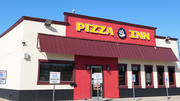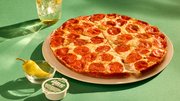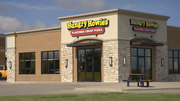Article
Simple solutions to minimizing food waste
Food waste is a fact of the restaurant business, and for something that cannot be completely avoided, the toll it takes is steep. Food waste has a spectrum of consequences that spans the erosion of profits to negatively impacting the ecosystem and harming the sustainability of the planet.

March 12, 2015 by Josh Fischer — Editor, NetWorld
Food waste is a fact of the restaurant business, and for something that cannot be completely avoided, the toll it takes is steep. Food waste has a spectrum of consequences that spans the erosion of profits to negatively impacting the ecosystem and harming the sustainability of the planet.
Minimizing the effects of food waste helps to bolster profits and limit the impact on the environment, putting less stress on landfills. There is no way to evade the reality that food products are perishable and customers do not always clean their plates, throwing food in the trash, but this reality can be mitigated with pragmatic solutions, and tasty recipes.
Randy Gier, CEO of Pie Five Pizza, a fast casual pizza restaurant, stated his restaurant uses a straightforward approach to minimizing waste. "Due to the simplicity of our concept our total food waste is minimal," Gier said in an email. "We even use our thin dough at the end of the night to make our crispy salad bowls!"
Native American tribes who hunted buffalo ate and utilized the whole animal, even using bones to manufacture tools. They are in large part a model for sustainability, and our environmental forebears. Identifying ways to maximize food stores in creative ways, like Pie Five Pizza, can help to make purchasing more efficient, increasing profits.
Salata, the fast casual salad bar restaurant, cuts all produce fresh, using as much of the fruit and/or vegetable as possible. Products are freshly cut throughout the day as supply is needed.
"Salata takes produce prep very seriously, to both reduce food waste and to meet the brand's very exacting standards," David LaBorde, Salata's director of product development, said in a statement. "To ensure our carefully-thought-out procedures are implemented, every employee spends three full days in intensive training, learning cutting and prep methods from 7 a.m. – 11 a.m., then working a lunch rush, then going back until 5 p.m. to improve on their techniques.
"The training is necessary. Salata has developed a set of proprietary procedures that reduce waste and ensure quality — ranging from the amount of skin that remains on the cucumber (to keep from drying out), to handpicking stems from grapes and cilantro, to using tiny corers that retain the most fruit from a tomato or strawberry."
Food prep tactics and employee training can help franchise restaurants keep their stores on point with company policies, like the handling of deliveries and storage.
"Our restaurants are set up to handle two food deliveries per week to optimize fresh product," Gier said. "Our restaurants are organized to allow for just enough food on hand and not having storage available for too much. Controlling our waste helps keep our food costs down which allows us to be really value-added when it comes to pricing."
AFood Waste Reduction Alliance study found that approximately 80 billion pounds of food are discarded into landfills in the United States every year; restaurants account for 37 percent of the waste that hits landfills. Additionally, rotting food in open landfills releases large quantities of methane, a greenhouse gas with 20 times more warming potential than carbon dioxide.
Portion size is one way that Salata's is looking to curb the methane footprint of food waste that isn't eaten by customers.
"The idea for a smaller sized salad actually came from our founder, Berge Simonian," LaBorde said. "While he wanted to give customers a great value, he found that he could never finish a regular-sized salad himself, so he tasked me to spec and price a smaller option that still provided great value and choice.
"The new small salad allowed customers with smaller appetites to finish their meal without leaving a lot of waste and those that wanted a little more variety could add soup as a side, creating a wonderful combo meal. In just six months on the menu, the small salad is already 30-35 percent of our overall sales."
This proves that eco-friendly tactics can help increase sales, a win-win for businesses and the environment.
 ChatGPT
ChatGPT Grok
Grok Perplexity
Perplexity Claude
Claude








